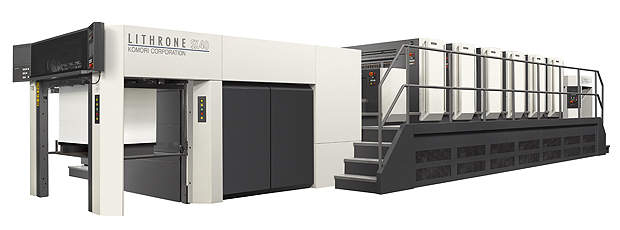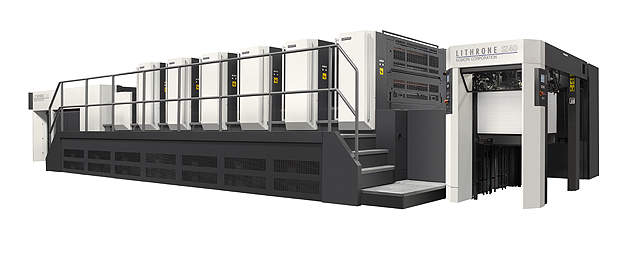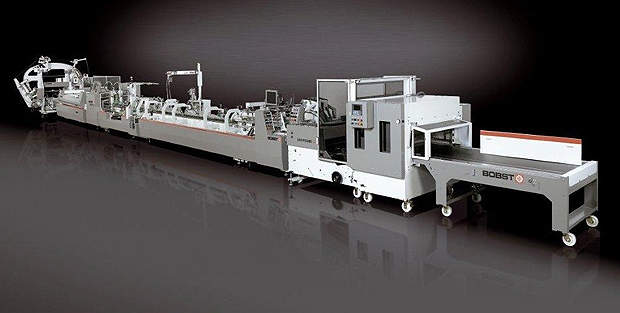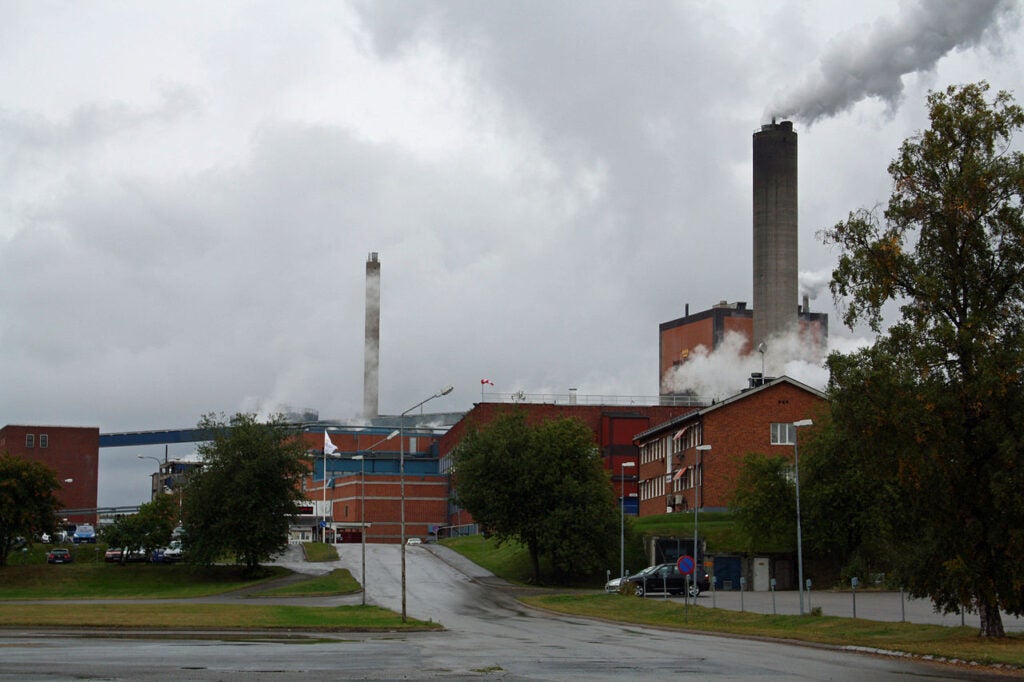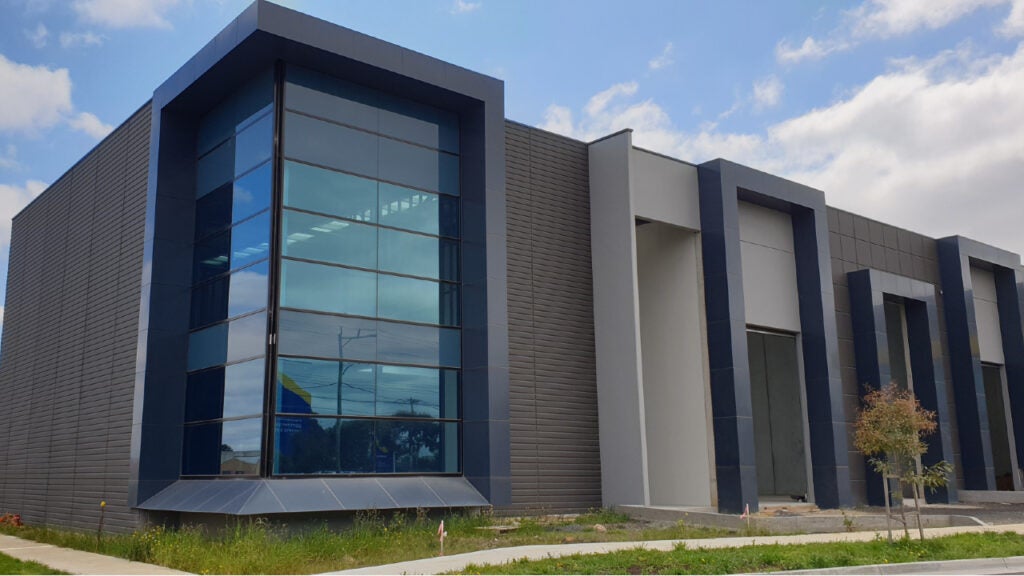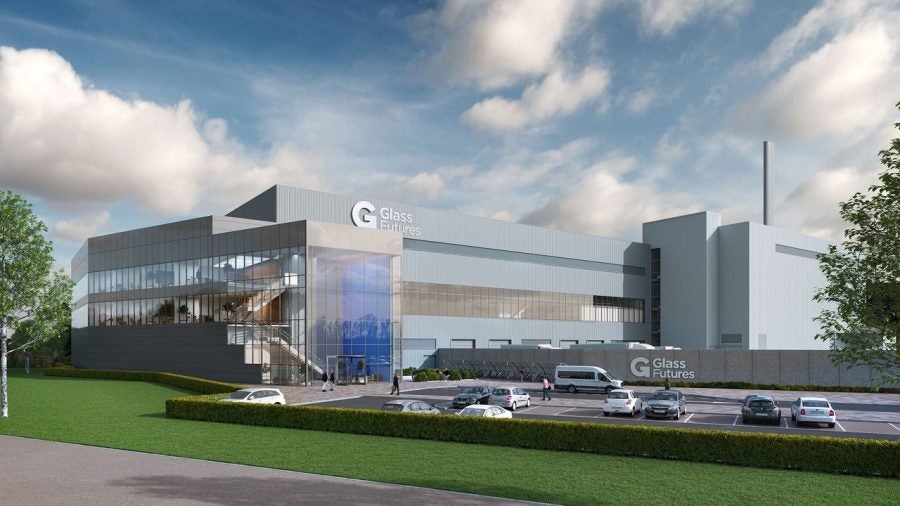Benson Group bought its plant in Gateshead, Tyne & Wear, UK, from Integrated Packaging in 2006. The acquisition was the fourth major expansion Benson had undertaken since 2002. The firm’s total turnover increased to £85m with the added plant.
The Gateshead plant manufactures carton packs for the food packaging industry. Major customers of the plant include Bakkavor and Northern Foods. The plant initially occupied an area of 2,500ft² when it was first established in 1977.
Since then the plant has been expanded and now occupies an area of 120,000ft².
After making the acquisition, Benson started to expand the plant to fulfil the growing demand from food packaging customers and carried out a detailed analysis of the plant’s capacity.
Based on the analysis, Benson ordered equipment to improve printing, die-cutting and finishing capacity.
Printers used at the Benson Group plant
In October 2009 Benson invested £1.9m in a Komori Lithrone SX40 press for the plant. The 40in sheet-fed press is equipped with six units and features a coating unit to add UV or water-based finishes. The press can produce 18,000 sheets an hour.
The press features a completely automatic plate-mounting system. It also features a print density control (PDC) spectrophotometer that helps make colour adjustments during printing. The Komori KHS-AI advanced intelligence system is also part of the press.
It uses a self-learning software that helps complete a job with very few make-ready sheets. The press is also environmentally friendly because it creates less waste substrate.
In addition to the new press, Benson also invested in upgrading three existing Komori presses at the plant. The three colour presses feature a coater.
They are being equipped with Komori’s K-Station, which enables centralised control of several Komori presses. They will also be fitted with a PDC spectrophotometer.
The presses will also be equipped with the Komori management system, which will help manage and store data from the press. By upgrading the existing presses, Benson expects to achieve higher throughput rates of about five million sheets annually from each press.
Equipment installed at the Gateshead-based food packaging facility
Analysis of the Gateshead plant showed it lacked major cutting and creasing capacity. As a result, print output was substantially reduced creating a bottleneck in the production process. To address this issue, Benson equipped the plant with a Bobst SPanthera 106-LER die-cutter.
A Bobst SP102-SE die-cutter, SP104-ER blanker and another SPanthera were already part of the plant. Installation of a second SPanthera die-cutter replaced the older SP102-SE and provided the much-needed capacity expansion at the plant.
The analysis of the plant’s capacity also revealed that four of the existing folder-gluers should be replaced with new equipment. To this end, in June 2010 Benson purchased two new Bobst high-speed folder-gluers for the plant. The Masterfold 75 A1 features an automatic feeder and a carton packer. The lines are upgraded to speeds of up to 700m a minute.
The new equipment should facilitate smooth flow of the production process at the plant. The two lines are upgraded versions of the Bobst Alpina folder-gluers already installed at the plant.
The new lines will replace these existing folder-gluers. They will provide extra capacity and help reduce labour operations. The lines are being installed in two phases. The first of the two high-speed folder-gluers was installed in April 2011.
Other equipment installed at the plant includes two Luxel T-9500 thermal plate-setters from Fuji. The plate-setters were installed in 2007. They run on Fuji’s Brillia HD LH-PIE plates, which help increase their run lengths.
The plates are non-bake, enabling UV printing. The company had to bake its plates earlier but by installing Fuji’s plates, this process was eliminated.

